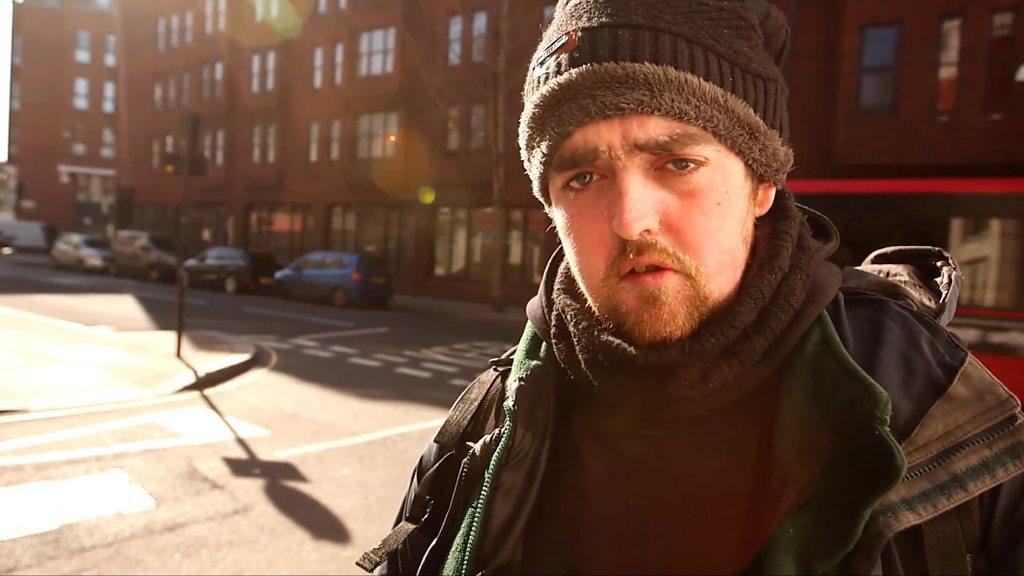Covid-19: Darlington homeless accommodation costs increase by 525%
- Published
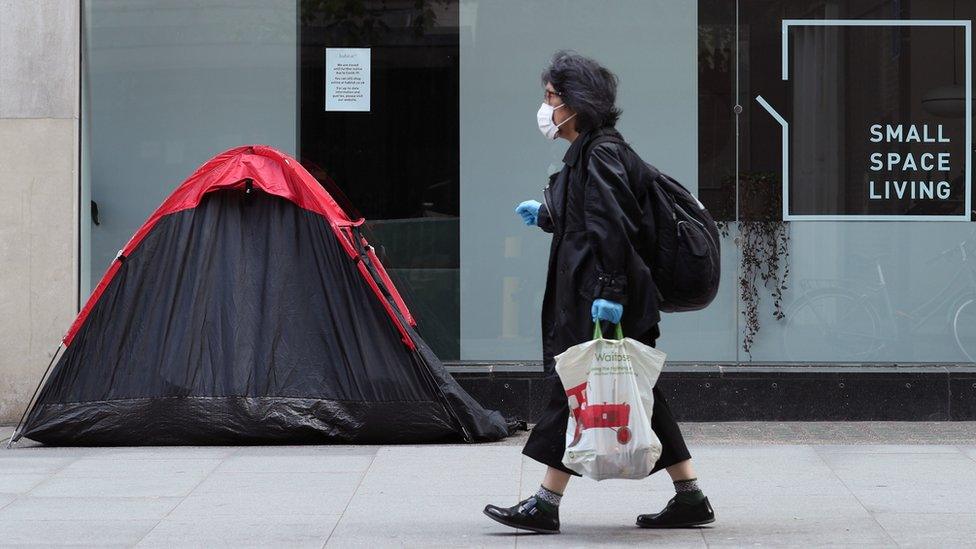
Councils have faced increasing demand for emergency homeless accommodation
A council has had to provide 525% more emergency homeless accommodation during the coronavirus pandemic.
Darlington Council officers said the number of homeless people asking for help had increased by 12%.
But, because of lockdown, they needed more nights in emergency accommodation.
Councillors were told the risk of infection was so great the authority "couldn't allow that situation to happen" where homeless people had to sleep rough.
There had been fewer options for re-housing people from temporary accommodation during the pandemic, officers said at the health and housing scrutiny committee meeting.
Extra precautions were needed and it was taking longer to find suitable properties.
There had been also been a large increase in the number of potentially costly placements outside the area, councillors were told.
The authority had already run up about £18m in coronavirus-related costs.

LOCKDOWN LOOK-UP: The rules in your area
THREE TIERS: How will the system work?
SOCIAL DISTANCING: Can I give my friends a hug?
PAY-PACKET SUPPORT: What will I be paid under the new scheme?
SUPPORT BUBBLES: What are they and who can be in yours?

Charities have warned homeless people would die during the winter unless action was taken to find them socially-distanced accommodation, the Local Democracy Reporting Service said.
A group of health and homelessness organisations have warned social distancing and safety measures for homeless shelters are likely to be "all but impossible".
They are urging the government to fund emergency accommodation.
Darlington Council has paid for rooms in bed and breakfast guesthouses and a hotel, as well as using vacant council housing, supported accommodation and specialist out of area placements.

Follow BBC North East & Cumbria on Twitter, external, Facebook, external and Instagram, external. Send your story ideas to northeastandcumbria@bbc.co.uk, external.
- Published8 October 2020
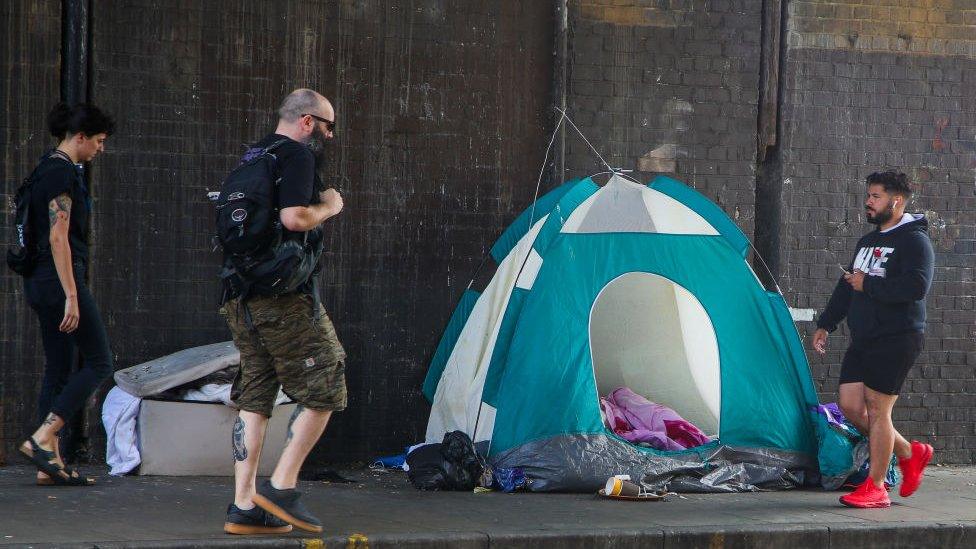
- Published21 October 2020
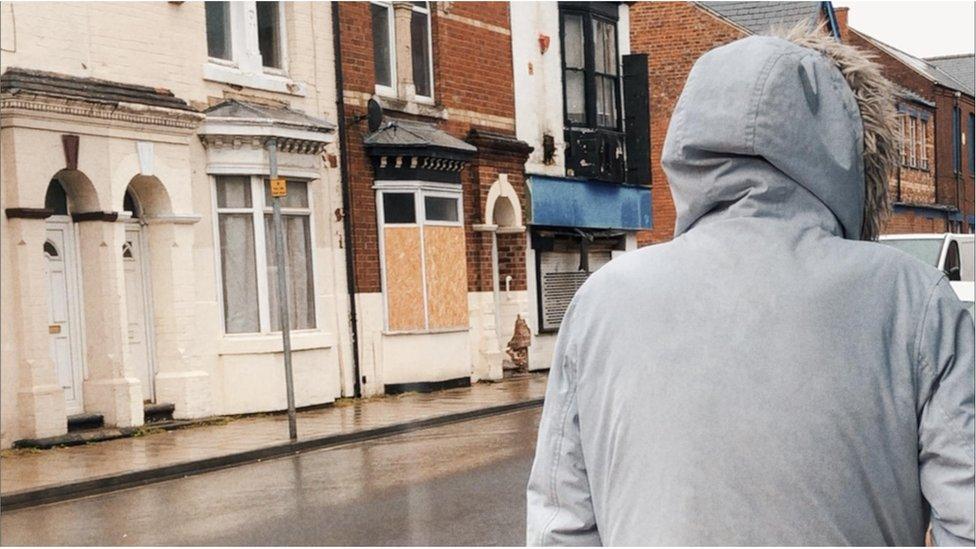
- Published19 June 2020
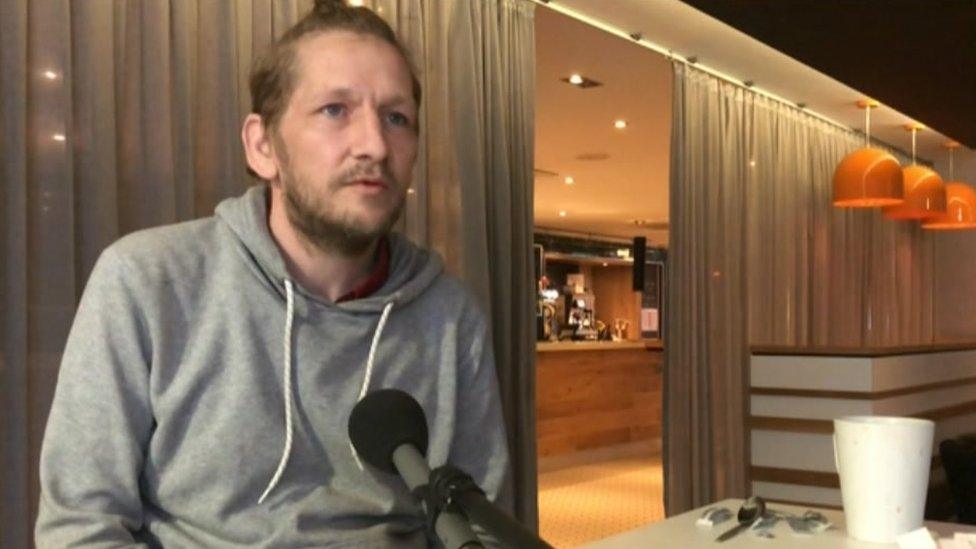
- Published25 March 2020
